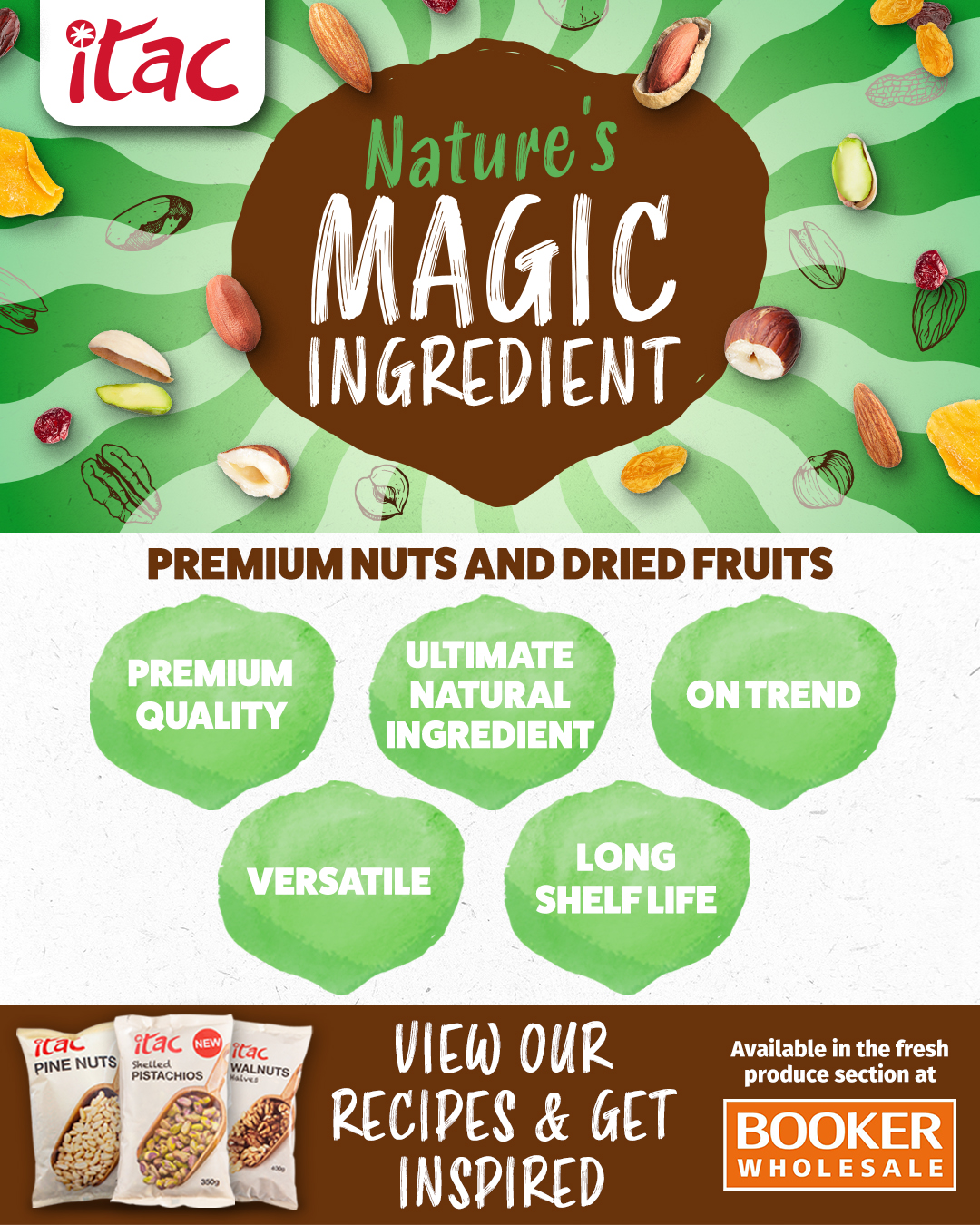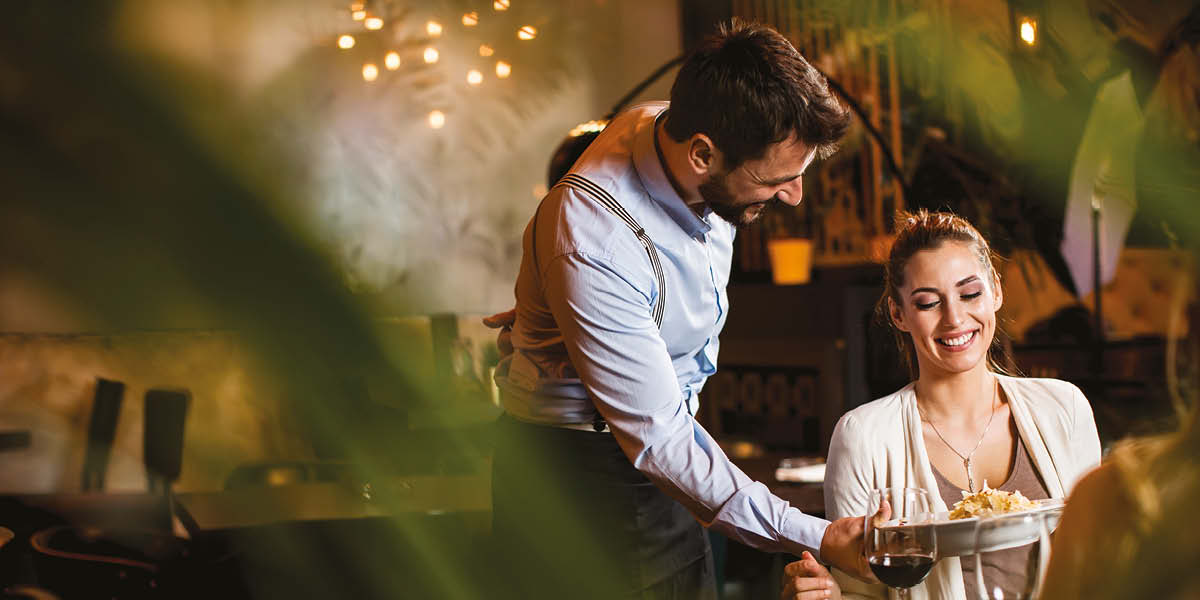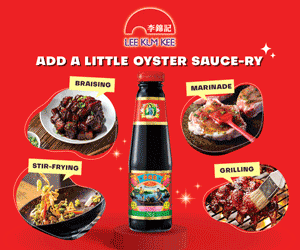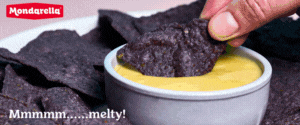Talking Heads: The next big thing

In this chapter of Talking Heads, three operators share their predictions on the trends they expect to shape the sector over the next 12 months
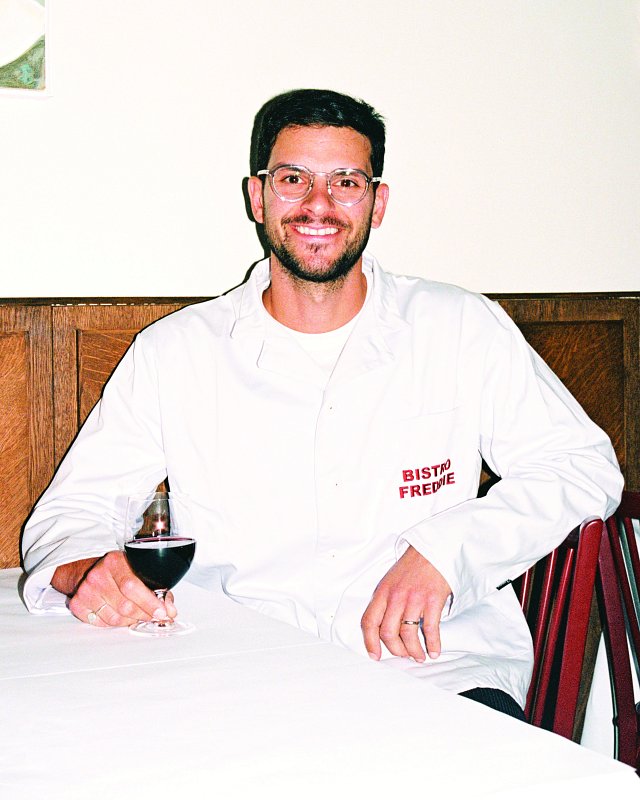
Ham Restaurants
Name: Dominic Hamdy
Job title: Founder
Business profile: Dominic Hamdy founded HAM Restaurants, a London-based group that comprises Bistro Freddie in Shoreditch, Crispin in Spitalfields, Bar Crispin in Soho and Crispin at Studio Voltaire in Clapham.
Dine Out (DO): What do you predict to be the most prominent food/ dining out trends in 2025?
Dominic Hamdy (DH): I think there will be more expectation for restaurants to become experiential. Great food and service isn’t really enough anymore. I think you’ll see a bigger focus on restaurant design and the full customer experience through digital channels before they have even arrived at the restaurant.
DO: What do you deem to be the biggest opportunity for hospitality in 2025?
DH: It looks like interest rates will continue to fall and there will be more appetite for investment in hospitality. Some businesses may be starting to look past the impact of Covid and restart their expansion plans. We’re also seeing new cuisines and influences coming into the market, such as Chuku’s – a West African tapas bar in Tottenham.
DO: And what is the biggest challenge you think the sector will have to overcome in the next 12 months?
DH: There are a number of new restaurant openings every single month and we are all fighting for the best talent in the industry. There will need to be a focus on retention, training and hiring, which is likely to be the biggest challenge.
DO: In what ways do you think the hospitality industry is likely to evolve in the next five years?
DH: The industry is particularly competitive in a slightly precarious cost-of-living crisis, so I think we’ll see weaker brands and static companies begin to fade. We’ll also see more established operators teaming up with fresher concepts to bring something new to their businesses.
DO: What advice would you offer fellow restaurateurs as we gear up for the new year?
DH: Look at ways to grow the events arm of your business to make the most of the busy party season. Clear private dining packs are essential to secure those bigger bookings that bolster the quieter periods of the year. You’ll also get great exposure and cross-pollination through it.
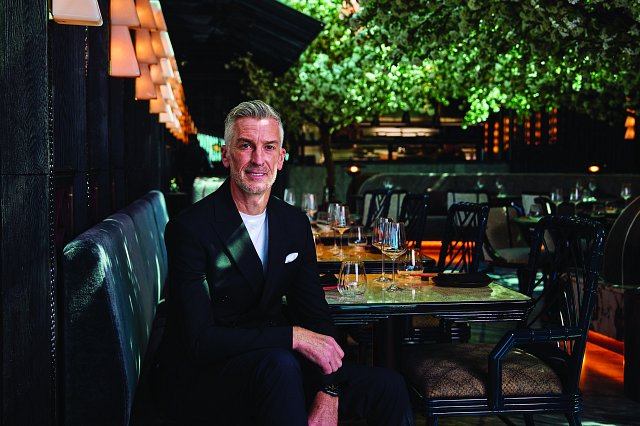
Permanently Unique Group
Name: Dan Purnell
Job title: Managing director
Business profile: Permanently Unique currently owns and operates five branches of the contemporary Chinese restaurant Tattu, as well as the modern Greek concept Fenix in Manchester, and Italian-American restaurant, bar and music venue Louis – the latest addition to the group’s estate.
DO: What do you predict to be the most prominent food/dining out trends in 2025?
Dan Purnell (DP): Comfort food – food that nourishes the body, tastes good and uses high-quality ingredients but is cooked with simplicity. There is already a resurgence of old-school Italian restaurants paying homage to a bygone time, and there’s certainly an appetite for nostalgia and familiarity.
For many, going to restaurants is a luxury so creating those experiences that bring people together round a table and get them speaking to one another, that’s something that doesn’t happen that often and is incredibly valuable. People want that sense of ease, not alienation.
DO: What do you deem to be the biggest opportunity for hospitality in 2025?
DP: National and regional growth in cities outside of London. It’s really exciting to see growth in other major cities such as Liverpool, Birmingham and Leeds that have really vibrant communities and cultures. We’re so fortunate to have such a melting pot to inspire our diversity of food and the hospitality industry. As a Manchester-born brand, we have always looked to the north, which is home to so much innovation, to continue growing our brand. It’s great to see other concepts looking to expand there too. It feels like Manchester is going through another renaissance.
DO: And what is the biggest challenge you think the sector will have to overcome in the next 12 months?
DP: How to and whether to integrate AI systems. Personally, I think it would be a real shame to lose that element of service, human-to-human, but I’m very aware that the data AI can create around consumer demand or staffing patterns can be powerful for some sectors. Currently, we have no plans to start implementing that across our brand, preferring instead to invest in our team.
DO: In what ways do you think the hospitality industry is likely to evolve in the next five years?
DP: I think it’s a tale of two halves. There will be continued significant growth around more casual dining or grab-and-go options. I think social media will have an enormous part to play in this sustained rise where brands are building so much momentum on these platforms, which translates to the real world. This is clear through the growth of gourmet sandwiches, burgers and luxury salad bars. The lunchtime trade seems to be moving towards more casual options that have been elevated, whereas dinners will continue to be the preserve of restaurants.
The political climate will continue to play a role in how much disposable income households have, so I think that, when choosing to dine out in the evenings, they will be looking for more special occasion restaurants that are accessible yet retain an element of experience out of the ordinary, rather than fine dining.
DO: What advice would you offer fellow restaurateurs as we gear up for the new year?
DP: We’re opening a new restaurant and late-night music venue in Manchester, and we know many others will also be launching new spaces. It’s incredibly exciting to see, so our advice would be to continue taking risks and be authentic. For me, brands that have true longevity are those that are doing something authentic to them, rather than following a trend or gimmick.

The Island Quarter
Name: John Whitehead
Job title: Food, beverage and events project director
Business profile: 1 The Island Quarter is the first phase of The Island Quarter development, and Nottingham’s newest canal-side hospitality and leisure destination. It currently consists of three unique brands – Binks Yard, Cleaver & Wake and Upstairs at Cleaver & Wake.
DO: What do you predict to be the most prominent food/dining out trends in 2025?
John Whitehead (JW): Sustainability is a cause for concern in every industry – including hospitality – and is far beyond being just a ‘fad’ or a virtue signal. Eco-friendly initiatives will continue to emerge, driven by the government, while demands will change from guests who are becoming increasingly environmentally aware when making spending choices.
DO: What do you deem to be the biggest opportunity for hospitality in 2025?
JW: Data has always driven food and drink venue operations, but now, as advanced AI and scope for technology are increasingly available, it presents a huge opportunity for the industry. With these tools, it’s possible to create far more bespoke services and experiences. This is happening in some places already – here at 1TIQ, we’re proud to have released our own loyalty app, but I imagine this will only continue to grow in conjunction with improvements to other technologies.
DO: And what is the biggest challenge you think the sector will have to overcome in the next 12 months?
JW: The economic landscape continues to pose challenges. Even as inflation looks to be easing in the short term, we’re still left with the wider macroeconomic factors that squeeze the consumer’s disposable income, while also driving up the cost of goods and other operational costs. Add to this the ongoing challenge of recruitment and the cost of talent acquisition, you can see how delicate a balancing act things have become. Many smaller businesses that don’t have significant economies of scale will struggle.
DO: In what ways do you think the hospitality industry is likely to evolve in the next five years?
JW: Consumer demographics are changing as spending power evolves towards different audiences with different expectations. It’s crucial for businesses to constantly look at their own audience data and ensure the space meets their needs.
The generational wealth gap is also constantly widening. With older generations supporting their younger family members financially, this could have a huge impact on the weekend and lunchtime restaurant market, where this age group would typically have been big spenders. Now is the time to reassess existing operations and ensure they’re fit for future purpose.
DO: What advice would you offer fellow restaurateurs as we gear up for the new year?
JW: The consumer is far better educated now than ever before and, as disposable income is generally squeezed, it’s understandable that they’re more discerning about where they spend.
Doing what you do exceptionally well is vital. Any kind of failure during the customer journey could have a big effect. For us, this means we will continue to search for those little USPs that make us different so we can harness them, while making investments in our app and loyalty scheme, as well as our customer feedback processes so we can offer something consistent and of value without becoming stale.


